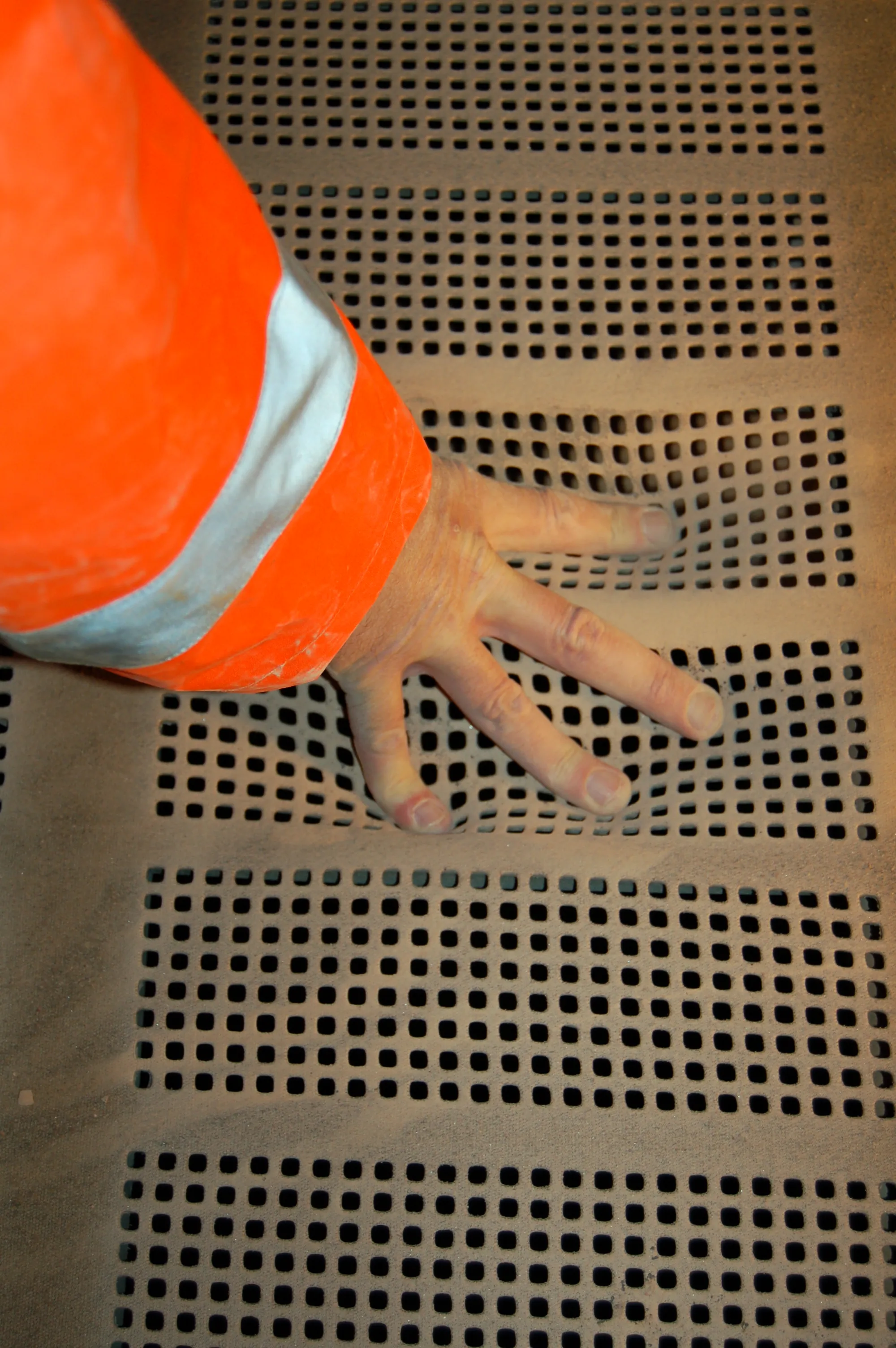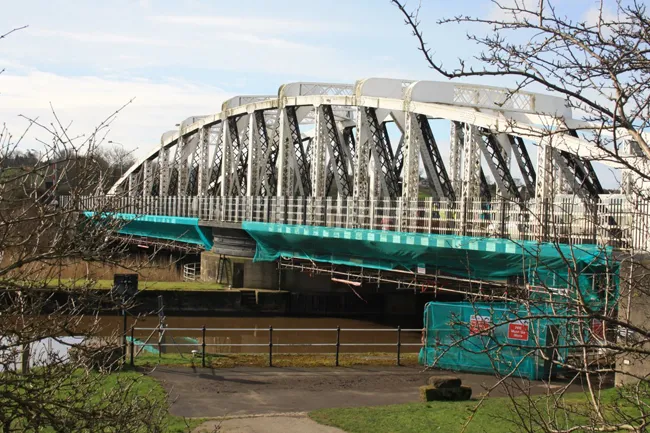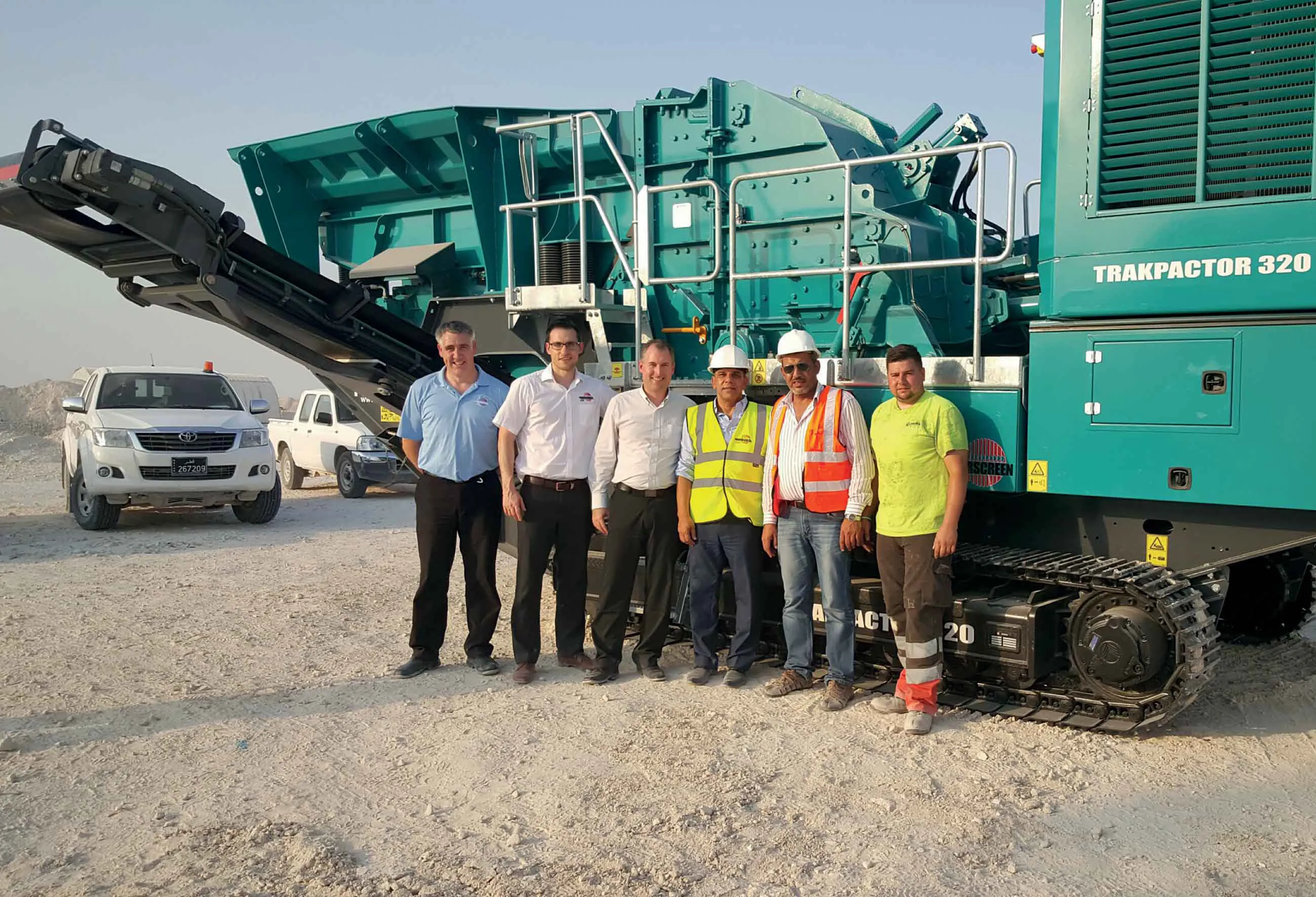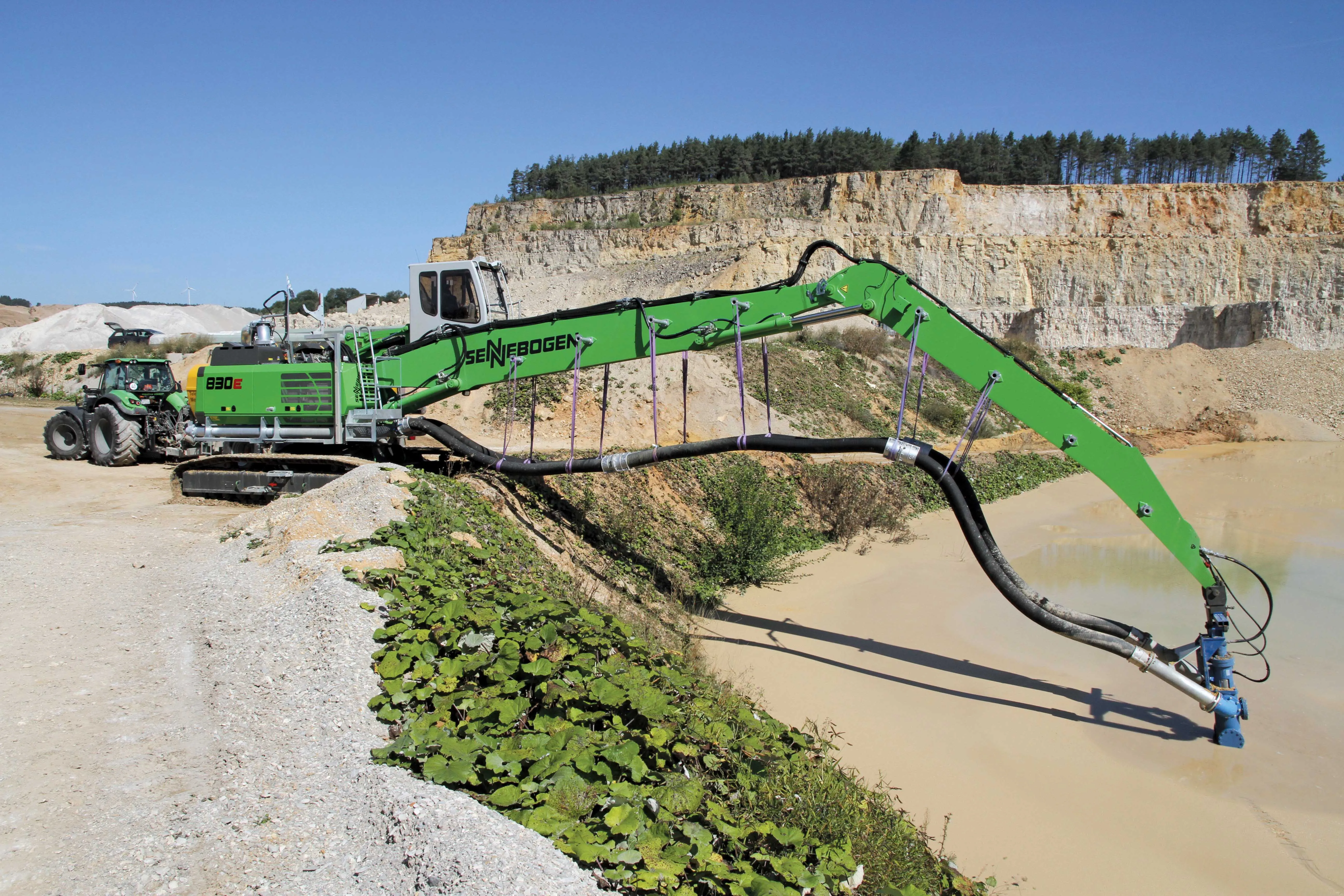Wales is renowned for many things but dry weather is not one of them. A combination of being close to the Atlantic and having lots of mountains means that it rains a lot and this is bad news when fine screening limestone using conventional steel wire mesh, which tends to clog and blind over in damp weather.
February 14, 2012
Read time: 3 mins

Wales is renowned for many things but dry weather is not one of them. A combination of being close to the Atlantic and having lots of mountains means that it rains a lot and this is bad news when fine screening limestone using conventional steel wire mesh, which tends to clog and blind over in damp weather.
This was the problem facing2644 Hanson's Forestwood quarry in Pontyclun, County Mid-Glamorgan. The blinding led to potential size and cleanliness quality problems with finished products, with the 10mm and smaller fractions in danger of being out of specification. It also meant that two or three times a day in bad weather the screen would have to be shut down and site engineers asked to climb into the screen and clear the blinding using rubber mallets. Taking up to an hour each time, this unpleasant job in a confined space also resulted in a significant loss of productivity, estimated to be between 20,000-30,000 tonnes/year.
A new system, the Trellex TFX rubber mats from6934 Metso, was fitted.
Specified and supplied by Metso's area manager Gareth Brooks, Trellex TFX is said to excel in conditions of up to 7% moisture thanks to its extreme flexibility, which helps to prevent the material from blinding over.
Forestwood Quarry was opened in the 1950s and acquired by Hanson in 2001. The quarry's plant was installed in the late 1990s by Unifloc and consists of a BJD rotary impact crusher, a SBM rotary impactor and four Hewitt & Robins screening modules. A team of ten men extract and process 250,000 million tonnes of limestone a year.
One of eight Hanson quarries in the area, products include 40mm, 28mm, 20mm, 14mm, 10mm, 6mm and dust, which are used for base course material, drainage material, capping and aggregate for a premix concrete plant that shares the site with the quarry.
"We were having a terrible problem with the Module 4 fine screen that produces 10mm, 6mm and dust," says production supervisor Richard Grey. "It was constantly blinding up in wet weather. The Trellex TFX system was more expensive but as it needs almost no unclogging and therefore no production stoppages the payback in terms of increased efficiency was very rapid." The Trellex TFX system is available in several thicknesses with molded and punched apertures. Installed on screens with longitudinal supports, they can be fitted on cross and longitudinally tensioned screening machines. Their effectiveness is said to lie in the extreme flexibility of the rubber screen 'cloth', where constant movement inhibits the material from blinding or pegging. The mats are reinforced with integral cords that maintain tension and provide accurate separations. No deck modifications are needed to the screen and panels are fitted with wear strips to protect the panel from wear from the camber bars.
"Metso supplied two of its own engineers to fit the new deck and ensure it was installed properly. They also showed our fitters how to install and maintain them correctly. Since then the Trellex TFX mats have been largely trouble free. No screen can cope in extremely wet conditions, and even the Trellex TFX mats can blind over. But with the rubber system blinding is a rare exception (only twice in eight months) rather than a twice daily occurrence.
"This guarantees that the aggregates are clean and of the right size whatever the weather," says Grey.
This was the problem facing
A new system, the Trellex TFX rubber mats from
Specified and supplied by Metso's area manager Gareth Brooks, Trellex TFX is said to excel in conditions of up to 7% moisture thanks to its extreme flexibility, which helps to prevent the material from blinding over.
Forestwood Quarry was opened in the 1950s and acquired by Hanson in 2001. The quarry's plant was installed in the late 1990s by Unifloc and consists of a BJD rotary impact crusher, a SBM rotary impactor and four Hewitt & Robins screening modules. A team of ten men extract and process 250,000 million tonnes of limestone a year.
One of eight Hanson quarries in the area, products include 40mm, 28mm, 20mm, 14mm, 10mm, 6mm and dust, which are used for base course material, drainage material, capping and aggregate for a premix concrete plant that shares the site with the quarry.
"We were having a terrible problem with the Module 4 fine screen that produces 10mm, 6mm and dust," says production supervisor Richard Grey. "It was constantly blinding up in wet weather. The Trellex TFX system was more expensive but as it needs almost no unclogging and therefore no production stoppages the payback in terms of increased efficiency was very rapid." The Trellex TFX system is available in several thicknesses with molded and punched apertures. Installed on screens with longitudinal supports, they can be fitted on cross and longitudinally tensioned screening machines. Their effectiveness is said to lie in the extreme flexibility of the rubber screen 'cloth', where constant movement inhibits the material from blinding or pegging. The mats are reinforced with integral cords that maintain tension and provide accurate separations. No deck modifications are needed to the screen and panels are fitted with wear strips to protect the panel from wear from the camber bars.
"Metso supplied two of its own engineers to fit the new deck and ensure it was installed properly. They also showed our fitters how to install and maintain them correctly. Since then the Trellex TFX mats have been largely trouble free. No screen can cope in extremely wet conditions, and even the Trellex TFX mats can blind over. But with the rubber system blinding is a rare exception (only twice in eight months) rather than a twice daily occurrence.
"This guarantees that the aggregates are clean and of the right size whatever the weather," says Grey.









